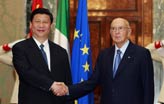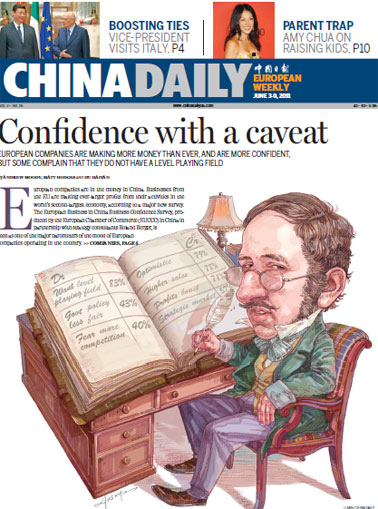Web Comments
New IMF head should look to future, not past
Updated: 2011-06-03 11:34
By John Ross (chinadaily.com.cn)
The real test of leadership of the IMF, the most significant international economic body, is to help prepare the world economy for the transformation that is taking place - both via practical measures and leading opinion. The aim should be to help create prosperous, democratic and peaceful development for all.
But instead of dealing with the most powerful trends in the world economy, discussion on the qualifications for IMF managing director remains excessively preoccupied with problems of the past, which were entirely predictable.
For example, the argument that the new head of the IMF must be a European because of what may be termed the "Euromess" - the debt crisis currently affecting Greece, Ireland, and Portugal. Far from this being a consideration in favor of a European running the IMF, it is a compelling argument against.
The present mess in Europe's economy was entirely predictable. In an economy as large as a continent, there is no way to prevent unequal productivity development. As this means some regions of such an economy become more competitive than others, there has to be a way to regulate the resulting unevenness. This can either be done by flexible exchange rates, as used to occur in Europe, or by budgetary transfers between different parts of the country – as occurs in the US or China. But if exchange rates are fixed, and there are no major budgetary transfers, then increasing unevenness and crisis are inevitable.
To show such a crisis was entirely predictable there is no need to alter one word of an article I wrote 15 years ago predicting present events. "There are two possible, coherent ways to regulate relations between the different European economies. One is to create a de facto or a de jure European federal state, with a sufficiently large budget to pursue an effective regional policy… The other model is that of adjusting economic relations between European states by means of exchange rate movements…
"[The Treaty of] Maastricht… proposes to create the most fundamental features of a common state – a single currency and a central bank. But it does not deal with the huge regional and sectoral implications of this.
"The process that would unfold with the creation of a single currency by this method may be predicted with certainty. Substantial parts of the EU… will be pushed into severe recession if they join. There will be sharply deepening regional imbalances and inequalities."
Precisely the predicted has unfolded. Why therefore should EU leaders, including Christine Lagarde, who failed to foresee the economically elementary, be regarded as the most suitable guardians of the world economy - rather than a representative of a developing country such as India, China or Brazil, which are running the world's most successful economies?
John Ross is Visiting Professor at Antai College of Economics and Management, Shanghai Jiao Tong University. The views expressed here do not necessarily reflect those of the China Daily website.
E-paper

Harbin-ger of change
Old industrial center looks to innovation to move up the value chain
Chemical attraction
The reel Mao
Improving app-iness
Specials

Vice-President visits Italy
The visit is expected to lend new impetus to Sino-Italian relations.

Birthday a new 'starting point'
China's national English language newspaper aims for a top-notch international all-media group.

Sky is the limit
Chinese tycoon conjures up green dreams in Europe with solar panels
